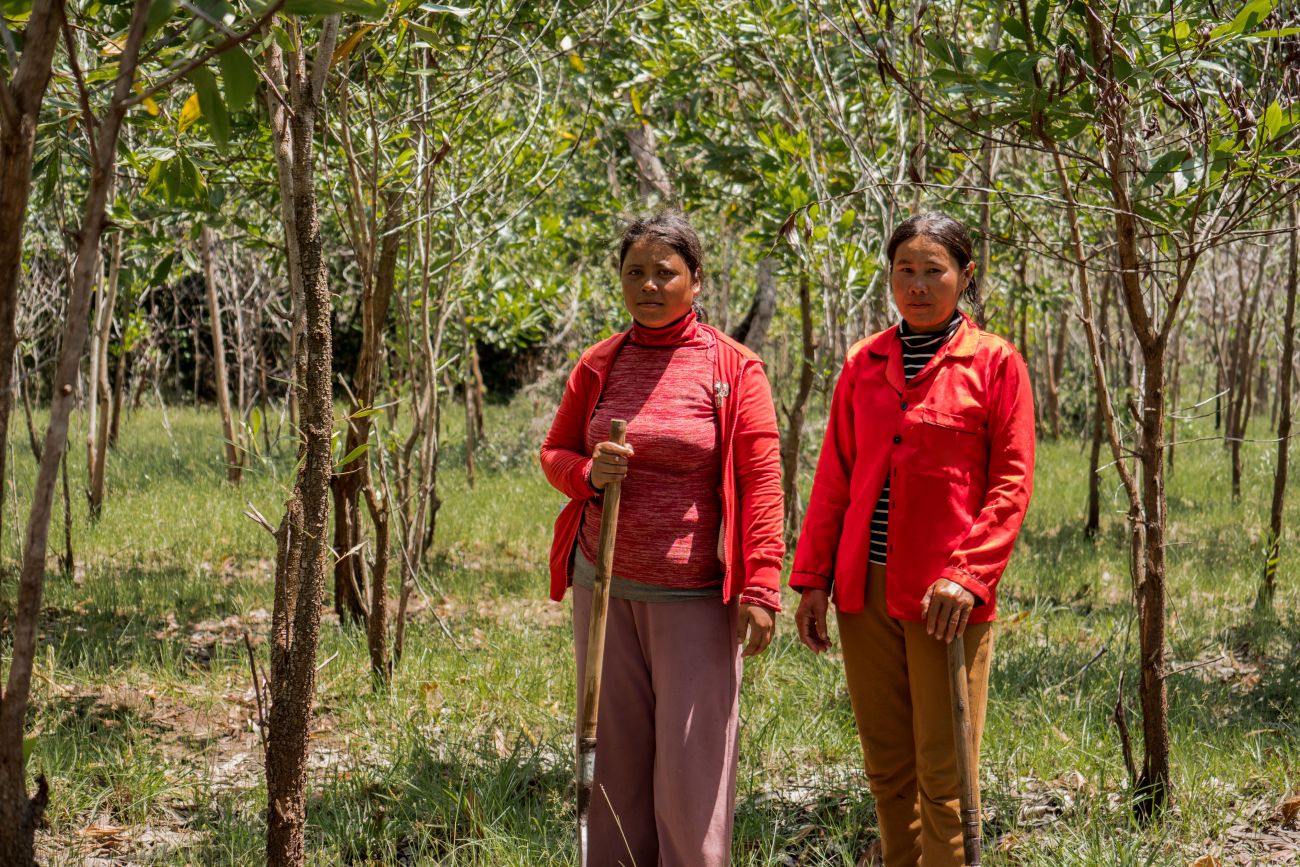
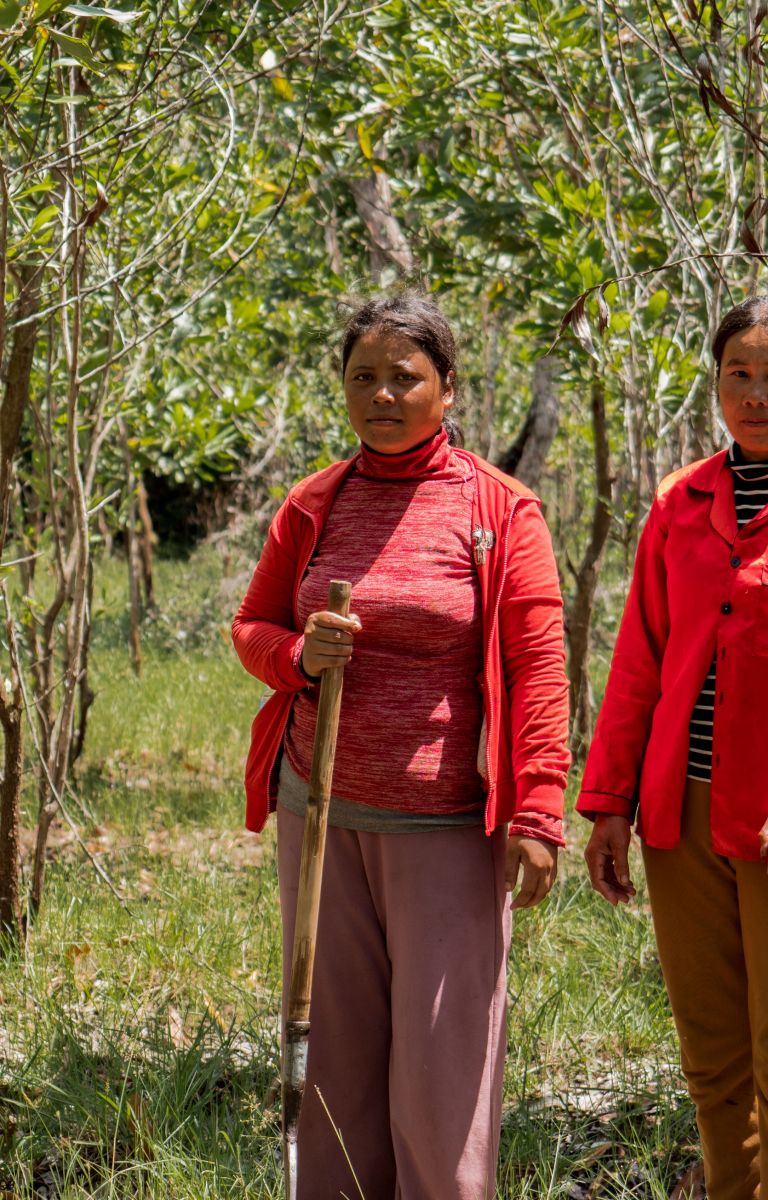
To Khoun Mon, the forest that shades him as he talks with delegates from the Swiss Development Cooperation (SDC) is radically different than that of his childhood. In the 1970s, harvesting charcoal left the land severely degraded. After decades of logging and economic development, the forests surrounding Prey Kbal Bey in Cambodia’s Kampong Thom Province were close to disappearing.
“There was a lot of shifting cultivation and no thoughts on legality occurring in my community from 1979 to early 2000s,” said Khoun. “Our livelihoods depended on the forest and we could only use the resources for subsistence.”
However, this changed over 10 years ago when community members established their community forest. Khoun is now his hometown’s community forest chief.

“This area had no trees when we started the community forest, but now we can see trees growing again,” said Khoun to the delegates from SDC, who were visiting Prey Kbal Bey to learn more about the Partnership for Forestry and Fisheries (PaFF) project.
PaFF, funded by SDC, is an eight-year project to improve communities’ resilience to economic and natural shocks through community-based natural resource management. It is a partnership among the World Wide Fund for Nature (WWF), RECOFTC, the Non-timber Forest Product Exchange Program (NTFP-EP) and Cambodia’s Culture and Environment Preservation Association (CEPA).
Since 2015, PaFF has helped Khoun and the 62 families of Prey Kbal Bey community forest implement their management plan.
Community forests in Cambodia are considered state public property by law. The Community Forestry Management Plan (CFMP) is one of the required documents communities must prepare and follow, after approval by Cambodia’s Forestry Administration, if they are to retain their rights over a community forest.
According to Khoun, community members are now able to collect non-timber forest products and timber poles to sell. Their efforts have generated more than 500 US dollars.
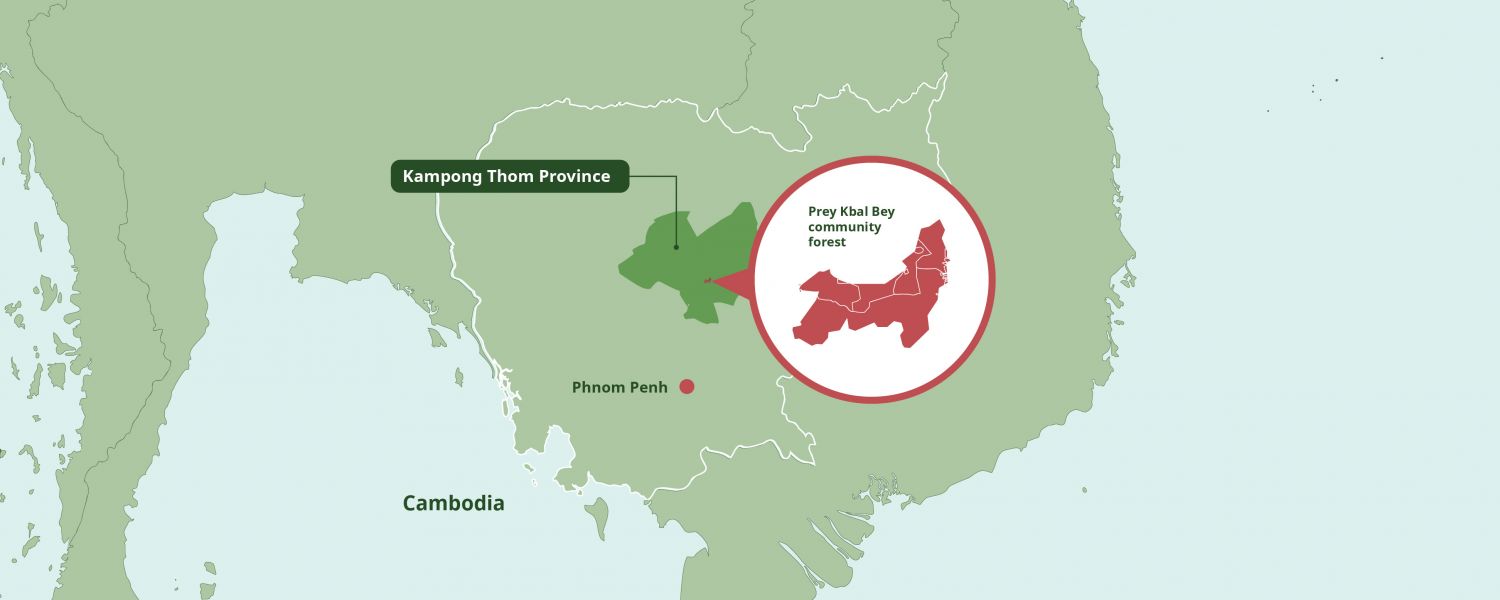
The forest’s regrowth has also presented an age-old problem to the community—illegal logging activity, especially during the night and monsoon season. In response, under PaFF, the community established a community forestry credit scheme. The scheme is managed by the community. The decision to establish the scheme has moved Prey Kbal Bey community forest one step closer to securing a self-sustaining source of income for patrolling and management.
Members of the community can borrow from the fund with only a 3 percent interest rate, providing a safer alternative to Cambodia’s micro-finance industry. The interest then goes to increasing the credit scheme, covering administration costs and implementing the management plan. The scheme also encourages participation from marginalized communities, one of the core principles of the PaFF project.
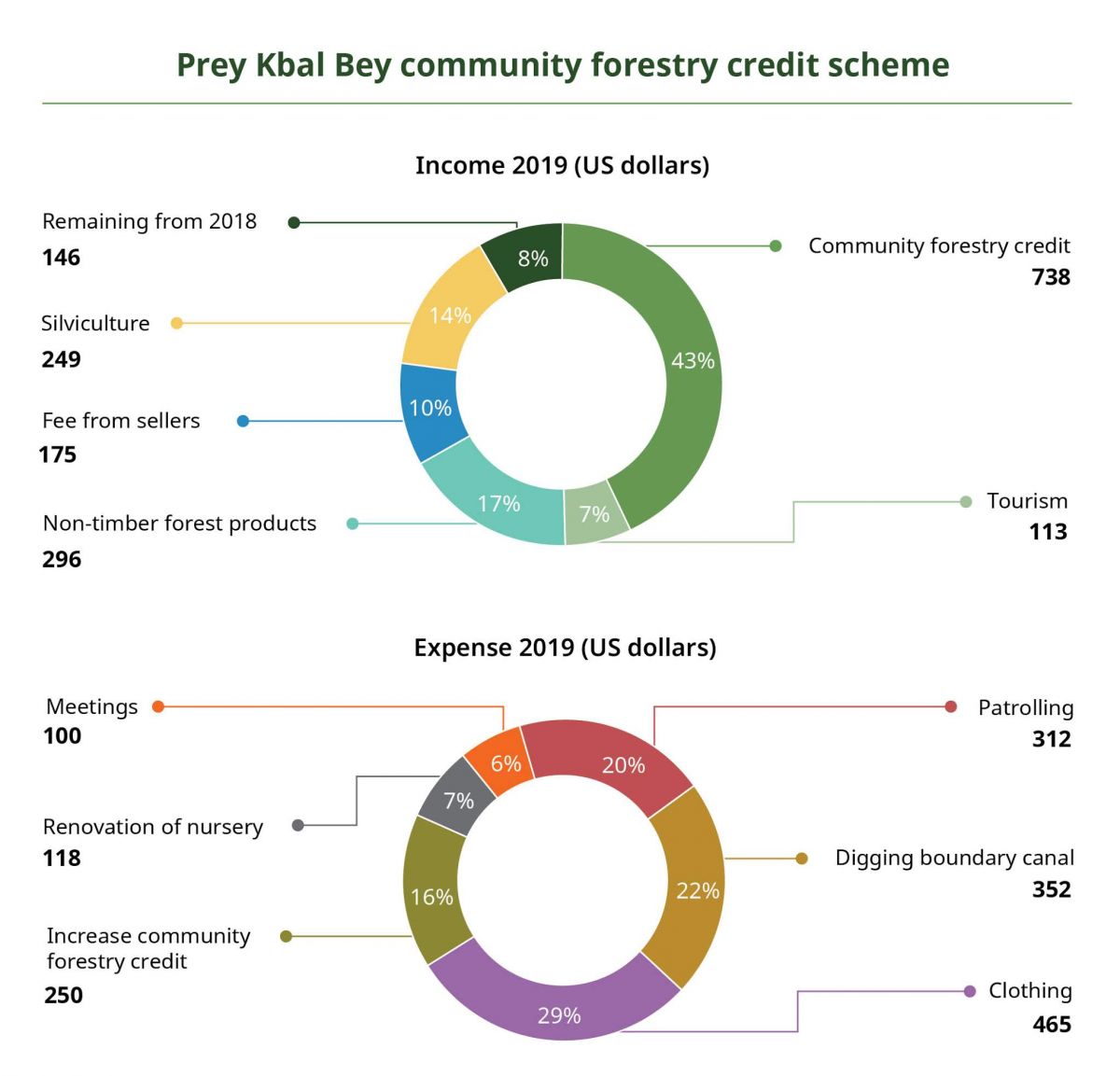
In Prey Kbal Bey and elsewhere in Kampong Thom Province, the majority of participants in the community forest credit schemes are women. Their presence allows them greater access to input into the decision-making process on how funding from the credit scheme is used to manage the community forest.
“We discuss how the budget for the community forestry management plan should be spent,” said Say Am, the secretary of Prey Kbal Bey community forest management committee. “I am now more aware of what we can do to manage the forest because I join the monthly credit meetings.”
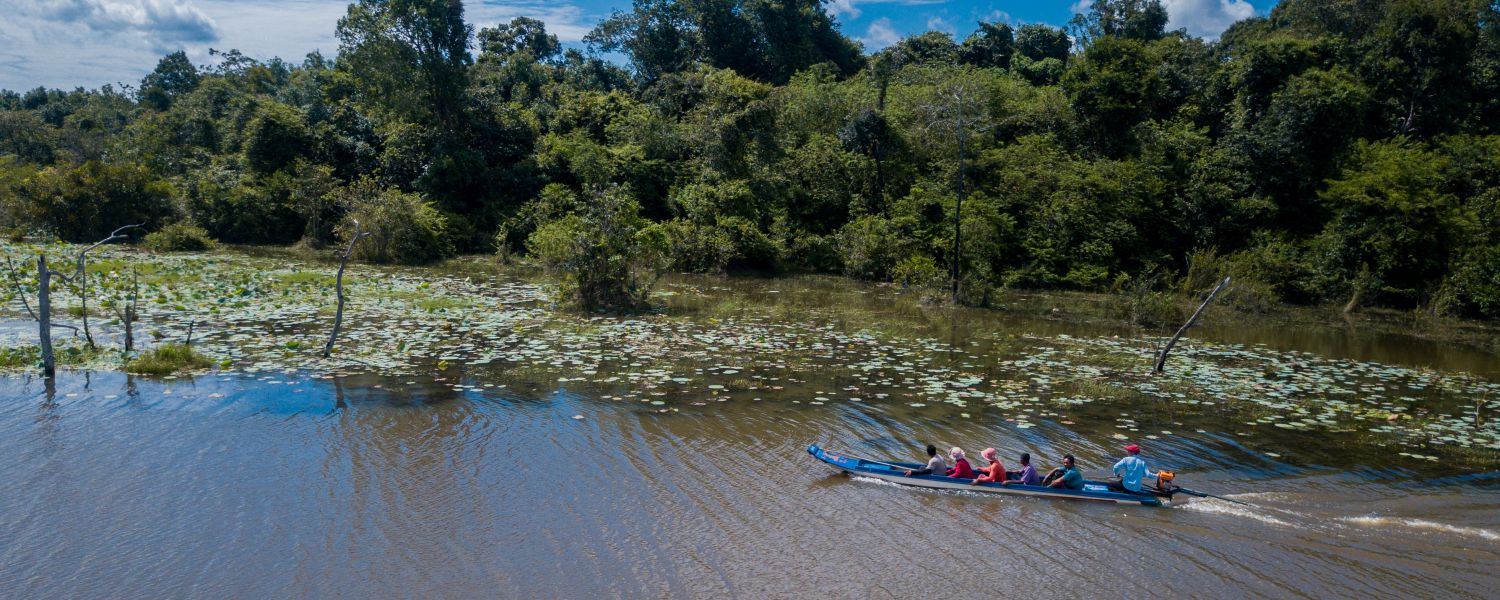
Prey Kbal Bey community members believe that the committee’s decisions have generated great success. By using the income from the fund, which is about 58 US dollars per month, Prey Kbal Bey can afford patrols twice a month and replant degraded areas without relying on external financial support. Community patrols have so far halted illegal activities on five separate occasions and confiscated one boat and 14 gas containers that were carrying 500 poles.
###
RECOFTC's work is made possible with the continuous support of the Swiss Agency for Development and Cooperation (SDC) and the Swedish International Development Cooperation Agency (Sida).

